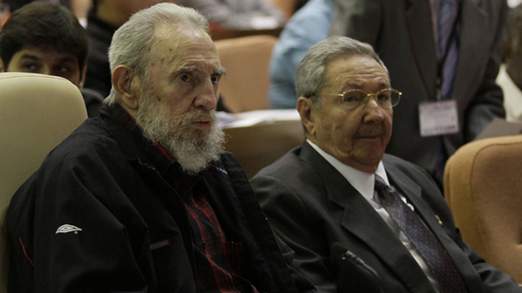For some people, if you are not on the social networking site Twitter every other minute, you simply do not exist.
I was having a conversation with a young man the other day when he asked me casually, so how long is it since you were on?
The blank look on my face told him straight away I was not part of the regular Twitter tribe, that group of people who now measure their lives in terms of when they last tweeted to let their friends, or rather followers as they are called in tweet language, know their particular views on anything from their rating of Beyonce’s latest performance, to the fashions on display at a Ghanaian funeral.
But, it seems things have moved on and Twitter is now much, much more important than its origins and common use might suggest.
This month, Somalia’s Al-Shabaab militia group opened a new Twitter account in English, less than 10 days after its previous account was suspended.
Al-Shabaab’s previous English-language account was suspended after it used it to announce it would kill a French hostage and then said it had done so.
Twitter’s rules state that threats of violence are banned. But who would have thought, Al-Shabaab was keen to be part of the in crowd.
But it is not enough to simply be tweeting, it is all about the number of followers you have.
‘Making history’
Nothing illustrates how popular you are in the world of Twitter than the number of people who follow you.
Al-Shabaab’s previous site boasted a hefty 20,000 followers before it was suspended. The new site already has a couple of thousand followers.
As you would expect, it seems no self-respecting politician is without a Twitter account these days, so keen are they to be seen to be trending with whatever the latest hot topic is.
Shortly after he had been declared the winner of last November’s presidential race in the US, Barack Obama sent one simple tweet.
It featured the president and his wife Michelle hugging, with the caption: “Four more years”.
Apparently, that simple victory celebration quickly became the most retweeted tweet in Twitter history.
African presidents are not quite in the same league with it comes to popularity on Twitter.
John Mahama of Ghana has around 11,000 followers nearly double that of Cote d’Ivoire’s Alassane Ouattara.
So, which African leaders are most Twitter savvy?
• South Africa’s Jacob Zuma (200,344 followers; 88 tweets, following 7)
• Rwanda’s Paul Kagame (104,082 followers; 2,253 tweets; following 0)
• Tanzania’s Jakaya Kikwete (49,685 followers; 1,375 tweets; following 11)
• Ghana’s John Mahama (11,134 followers ; 213 tweets; following 614)
• Cote d’Ivoire’s Alassane Ouattara (6,705 followers; 3,535 tweets; following 34)
(Source: Twitter, 13 February 2013)
Jakaya Kikwete of Tanzania has nearly 50,000 and Rwanda’s Paul Kagame around 104,000.
Jacob Zuma, the president of South Africa, is way out in front with more than 200,000 followers.
Tweeting buzz
This got me wondering, are our presidents really spending a lot of their time on Twitter and what does it say about those such as Kenya’s President Mwai Kibaki who do not have Twitter accounts?
I leave you to decide.
The truth is that although it may have started out simply as a social networking site, it is now more than that – a crucial communication tool that almost anyone can use to get their voice heard.
Only this month, Twitter has been the main avenue for a campaign for change following the brutal rape and murder of a 17-year-old South African girl.
Her death has served as a rallying point in a country that has often ignored sexual violence.
For the football mad, Twitter was abuzz throughout three weeks of January with commentary on every twist and turn in the Africa Cup of Nations tournament in South Africa.
And we will never know what part a vigorous Twitter campaign played in helping restore Burkina Faso’s star striker Jonathan Pitroipa to the team for the final against Nigeria after he picked up a red card in the semi-final.

.jpeg&w=60&q=100&h=60)




.jpeg&w=60&q=100&h=60)





